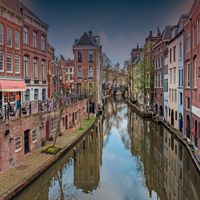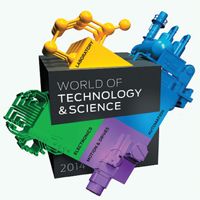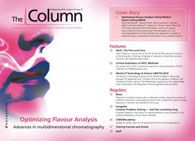World of Technology & Science (WOTS) 2014
The World of Technology & Science 2014 (WOTS) exhibition will be held between 30 September and 3 October 2014 at the Jaarbeurs Exhibition and Conference Centre, Utrecht, The Netherlands, organized by two collaborating Dutch associations, FHI (Federation of Technology Branches) and FEDA.
The World of Technology & Science 2014 (WOTS) exhibition, formally known as the HET Instrument Exhibition, will be held between 30 September and 3 October 2014 at the Jaarbeurs Exhibition and Conference Centre, Utrecht, The Netherlands, organized by two collaborating Dutch associations, FHI (Federation of Technology Branches) and FEDA.
Photo Credit: Maria Swä

rd/Getty ImagesThe main feature of WOTS 2014 is the instrument exhibition, which is split into four different themed "worlds" that include the World of Automation, World of Electronics, World of Laboratory, and World of Motion & Drives. The "Laboratory World" will introduce visitors to new technologies, with around 150 companies expected to showcase their latest developments in analytical instruments, optical instruments, and laboratory equipment. Information about laboratory applications of technology will be given in the conference programme and through interactive projects. X-peditions are interactive guides that lead visitors through six to eight booths centred around different themes, for example "Safety in the Lab X-pedition".

The WOTS 2014 conference programme will offer 20 seminars covering topics including pharmaceuticals, food automation, factory automation, and industrial efficiency. One particularly interesting seminar, "Insights into the Daily Challenges of Chromatography", will focus on the challenges and trends in sample preparation, ultrahigh-pressure liquid chromatography (UHPLC), liquid chromatography (LC), gas chromatography (GC), hydrogen as a carrier gas, multi-dimensional separation, and data processing. Johan Paul from Flanders Materials Centre (Ghent, Belgium) will present the optimal approach to automating sample preparation for analysis. All too often, automated sample preparation is seen as just a translation of a manual procedure to a classical autosampler when a more targeted approach could give better results. David Benanou of Veolia (Paris, France) will evaluate the use of hydrogen delivered by a gas generator as a carrier gas for gas chromatography–mass spectrometry (GC–MS) in sludge analysis. Several parameters will be explored, including the effect of the diffusivity of hydrogen on a vacuum system, the eventual variation of the fragmentation pattern of the steroids, and the change in detection capacity of the system. Hans-Gerd Janssen, who is a professor of analytical chemistry at the University of Amsterdam (Amsterdam, The Netherlands) and researcher at Unilever Research, will present the principles of multi-dimensional chromatography, with attention to several systems, including LC×LC, GC×GC, and LC×GC. This seminar will be held on the morning of Thursday 2nd October and will be organized by Avans+, Bruker, Da Vinci Laboratory Solutions, Interscience, JSB Joint Analytical Systems, and Waters Corporation.
Please visit www.wots.nl/ for more information about the exhibition and free registration.
Email: info@fhi.nl
Website: www.wots.nl/
This article is from The Column. The full issue can be found here: http://www.chromatographyonline.com/vol-10-no-17-column-september-18-2014-europe-and-asia-pdf

Regulatory Deadlines and Supply Chain Challenges Take Center Stage in Nitrosamine Discussion
April 10th 2025During an LCGC International peer exchange, Aloka Srinivasan, Mayank Bhanti, and Amber Burch discussed the regulatory deadlines and supply chain challenges that come with nitrosamine analysis.












